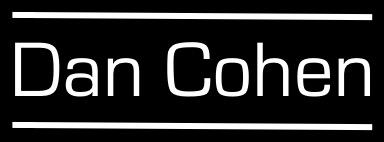For some time here at the Roy Rosenzweig Center for History and New Media we have been thinking about the state of scholarly publishing, and its increasing disconnect with how we have come to communicate online. Among our concerns:
• A variety of scholarly work is flourishing online, ranging from long-form writing on blogs, to “gray literature” such as conference papers, to well-curated corpora or data sets, to entirely novel formats enabled by the web
• This scholarship is decentralized, thriving on personal and institutional sites, as well as the open web, but could use some way to receive attention from scholarly communities so works can receive credit and influence others
• The existing scholarly publishing infrastructure has been slow-moving in accounting for this growing and multifaceted realm of online scholarship
• Too much academic publishing remains inert—publication-as-broadcast rather than taking advantage of the web’s peer-to-peer interactivity
• Too much scholarship remains gated when it could be open
Legacy formats like the journal of course have considerable merit, and they are rightly valued: they act as critical, if sometimes imperfect, arbiters of the good and important. At the same time, the web has found ways to filter the abundance of online work, ranging from the tech world (Techmeme) to long-form posts (The Browser), which act as screening agents for those interested in an area of thought or practice.
What if we could combine the best of the scholarly review process with the best of open-web filters? What if we had a scholarly communication system that was digital first?
Today we’re announcing a new initiative to do just that: PressForward, generously supported by a $862,000 grant from the Alfred P. Sloan Foundation‘s Digital Information Technology program.
PressForward will bring together the best scholarship from across the web, producing vital, open publications scholarly communities can gather around. PressForward will:
 Develop effective methods for collecting, screening, and drawing attention to the best online scholarship, including scholarly blogs, digital projects, and other web genres that don’t fit into traditional articles or books, as well as conference papers, white papers, and reports
Develop effective methods for collecting, screening, and drawing attention to the best online scholarship, including scholarly blogs, digital projects, and other web genres that don’t fit into traditional articles or books, as well as conference papers, white papers, and reports
 Encourage the proliferation of open access scholarship through active new forms of publication, concentrating the attention of scholarly communities around high-quality, digital-first scholarship
Encourage the proliferation of open access scholarship through active new forms of publication, concentrating the attention of scholarly communities around high-quality, digital-first scholarship
 Create a new platform that will make it simple for any organization or community of scholars to launch similar publications and give guidance to institutions, scholarly societies, and academic publishers who wish to supplement their current journals with online outlets
Create a new platform that will make it simple for any organization or community of scholars to launch similar publications and give guidance to institutions, scholarly societies, and academic publishers who wish to supplement their current journals with online outlets
We hope you’ll join us making this new form of scholarly communication a reality. You may be a researcher in a field that is underserved by traditional outlets, because it is new, interdisciplinary, or involves non-textual media. Perhaps you have a digital project that can only be “published” if you describe it in an article. You may be an editor of a journal who would like to supplement standard articles with digital content from across the web, or a scholarly society that wants to find and feature online work. As PressForward evolves, we hope to serve all of these constituencies, as well as a broad audience currently locked out of gated scholarship.
Learn more about PressForward on our new site, or by sending us an email. You can also follow us on Twitter or via RSS.


Leave a Reply
You must be logged in to post a comment.